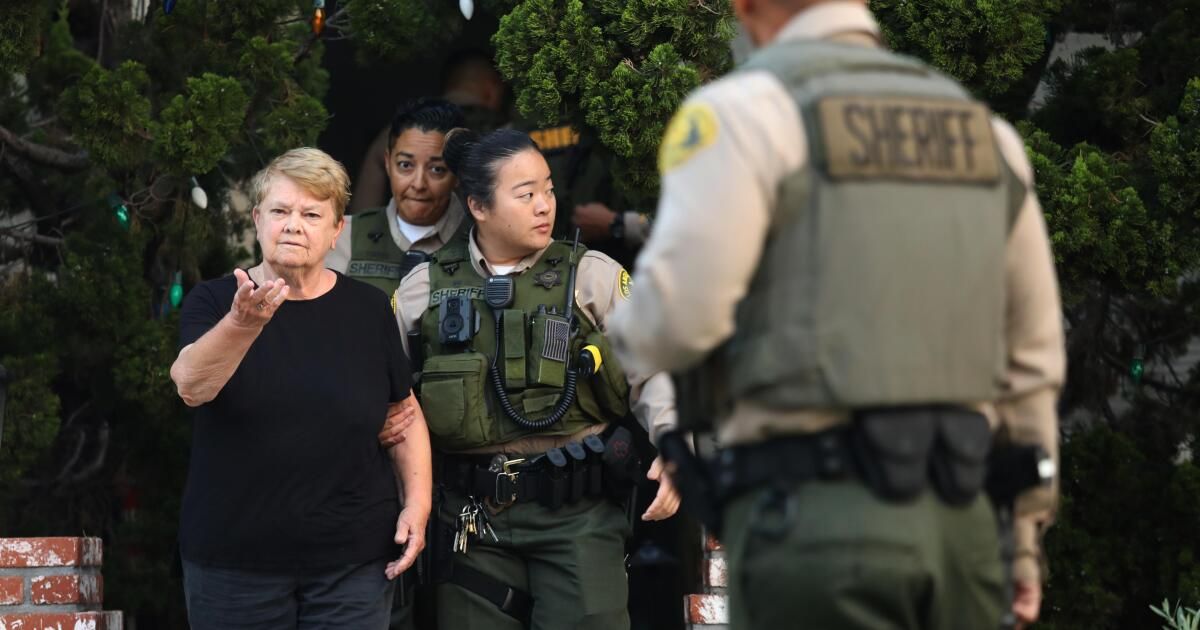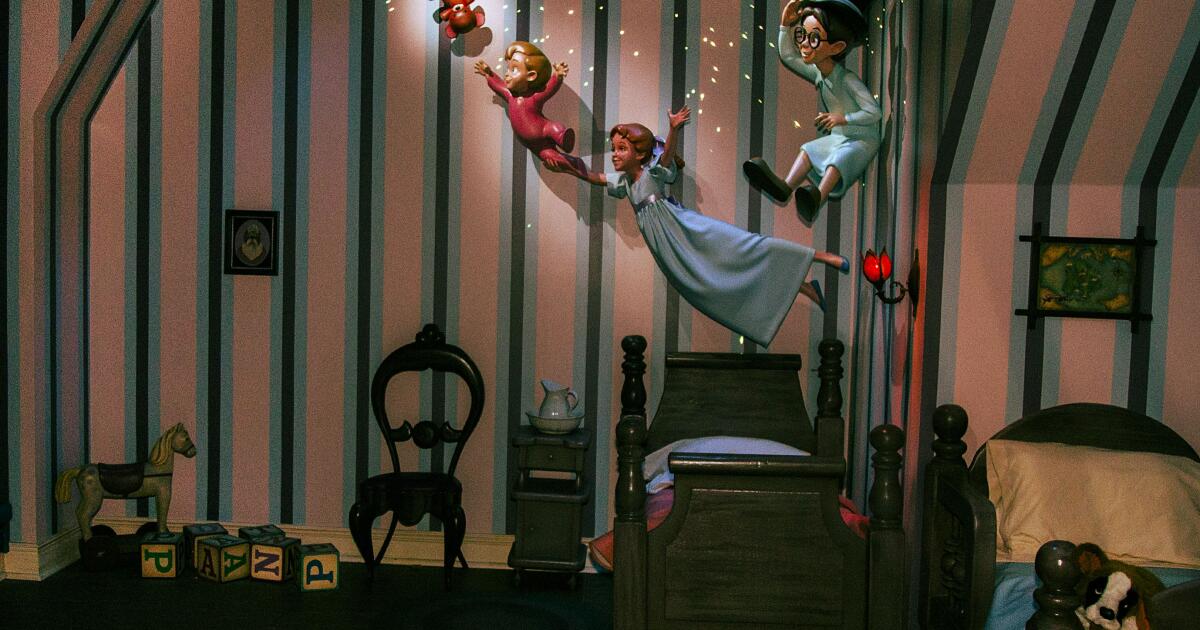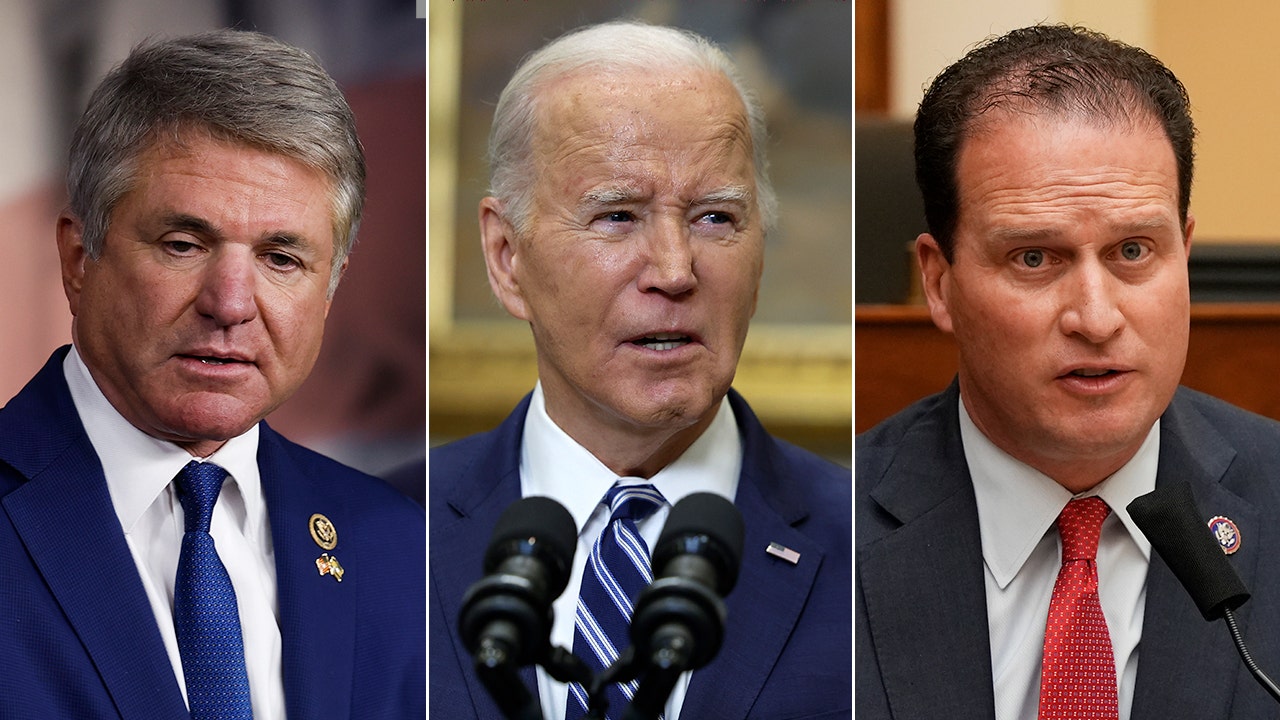Two years after Los Angeles County sheriff's deputies showed up with guns and battering rams to conduct an early-morning raid on Sheila Kuehl's Santa Monica home, the investigation is officially over and there will be no criminal charges.
Instead, Los Angeles County Superior Court Judge William Ryan on Wednesday approved a settlement in which the California Department of Justice said there was a “lack of evidence of wrongdoing.” The department had taken over the politically charged investigation originally launched by then-Los Angeles County Sheriff Alex Villanueva’s controversial public corruption squad.
“The Department of Justice has conducted a thorough and independent investigation into the allegations that served as the basis for the LASD investigation,” state prosecutors wrote. “The Department of Justice has concluded, based on this independent investigation, that there is insufficient evidence to support the filing of criminal charges.”
The case had centered on contracts worth more than $800,000 that Metro had awarded to Peace Over Violence, a nonprofit run by Patti Giggans, one of Kuehl’s friends and a critic of Villanueva. The organization had been tasked with running a hotline to report sexual harassment on the transit system, but the agreement to do so came under scrutiny after a whistleblower alleged that Giggans had been unfairly awarded the contract as compensation for supporting Kuehl, a former Los Angeles County supervisor.
The investigation eventually became rife with other allegations, including the unsubstantiated claim (often repeated by Villanueva) that county Inspector General Max Huntsman had been involved in tipping off Kuehl before the raid on his home, as well as Giggans’ home and the nonprofit’s offices.
Days after the raids, state Attorney General Rob Bonta’s office took over the investigation from the Sheriff’s Department. For two years, the state quietly investigated the matter while Villanueva ranted about it at seemingly every opportunity. He referred to Kuehl and Huntsman as “felony suspects” and seized on the case as a way to undermine some of the most vocal critics who oversee his department. On Wednesday, he did not immediately respond to an emailed request for comment.
In a press release, Bonta reiterated the terms of the agreement, saying the agency “has concluded that there is insufficient evidence to support the filing of charges based on the MTA’s award of a sole-source contract to POV, or on campaign contributions received by Supervisor Kuehl from individuals affiliated with POV. Furthermore, the Department of Justice has not found sufficient evidence to file charges for interference with a search warrant. Therefore, the Department of Justice has closed the investigation into this matter.”
To Kuehl, who decided retire in 2022Wednesday's result was a vindication.
“I think it’s a pure victory,” he said. “Because there was never anything there and it was all made up by the sheriff.”
He The conclusion of the case comes weeks later The Times revealed that state prosecutors also recently rejected another high-profile investigation led by the same public corruption squad. In that case, investigators had charged Huntsman and several others, including a former Times reporter, with a variety of felonies related to allegedly stolen records and leaked documents. Federal and state authorities repeatedly rejected the case, and at one point a county legal counsel warned department officials that it was “not legally viable.”
That investigation, along with the Kuehl investigation, was one of Villanueva’s main criticisms of the county watchdog. At one point, he cited it as part of the justification for excluding Huntsman from the department’s databases. At least twice, he asked county officials to remove Huntsman from his job. But now, after years of legal wrangling, Huntsman is finally no longer in the crosshairs of investigations launched by the agency he oversees.
The Sheriff's Department did not immediately comment.
Although the raids took place in the fall of 2022, the alleged corruption that led to them reportedly began years earlier.
Amid persistent allegations of sexual harassment and groping on local buses and subway rides in 2013 and 2014, Metro turned to Peace Over Violence for help. Metro’s spokesperson at the time later said he found the organization through an internet search. He cold-called Giggans, and she began collaborating informally with Metro, helping officials come up with an advertising strategy and an anti-harassment slogan: “It’s off limits.”
Giggans said her organization would eventually have to be paid if Metro officials wanted more help from her. That's why in 2015 and 2016, Peace Over Violence received $105,000 for consulting work, as The Times previously reported.
Although Kuehl was elected to the Board of Supervisors in 2014 and served on Metro's board in that capacity, Metro officials said she had nothing to do with the initial anti-harassment efforts.
The scope of that work increased after three Metro board members, including Kuehl, asked staff to hire an outside group that could offer support to victims as a way to address ongoing problems without further relying on police.
Peace Over Violence then proposed a 24-hour hotline for $160,000 a year. The hotline went live in early 2017, and Metro staff extended the contract for three more years for an additional $495,000 — a move that did not require board approval, meaning Kuehl had no say.
The hotline was overseen by Jennifer Loew, then a Metro employee. But in 2019, As previously reported by The TimesLoew was beginning to have problems at work. He was eventually given a reprimand after an internal investigation found he had been “bullying” staff.
A few weeks later, court records show, Loew began alleging corruption at Metro and focused his claims on the Peace Over Violence contracts, which he said were awarded in exchange for $2,000 that Giggans donated to Kuehl’s campaign in 2013 and 2014. Metro staff, Loew said, pushed the deals to stay in Kuehl’s good graces.
First, Loew asked Metro’s inspector general to investigate. He also asked the FBI, the Los Angeles Police Department and the Los Angeles County district attorney’s office to take up the case. There was no sign that any of them were interested, but in September 2019, the Sheriff’s Department sent detectives to investigate Loew’s report.
The detectives were from the public corruption unit, which Critics said Villanueva often targeted his political enemies. It was the same unit whose activities were later condemned by the Civilian Oversight Commission, of which Giggans has been a long-time member. in a 10-page memo calling for an investigation into whether Villanueva was abusing his power.
The unit’s first search warrants as part of the Peace Over Violence investigation were carried out in February 2021. Investigators targeted the nonprofit’s offices, as well as those of Metro and Metro’s inspector general. Peace Over Violence turned over boxes of records. Metro and its inspector general questioned the legitimacy of the investigation and went to court to challenge the warrants.
That fall, the Sheriff's Department took its evidence to local prosecutors and asked them to consider filing charges. Prosecutors refused, saying the evidence did not prove “beyond a reasonable doubt” that someone had committed a crime. The Sheriff's Department continued to investigate. Although he frequently spoke and posted about the investigation online, Villanueva said he recused himself from the case, as well as other cases handled by his public corruption unit.
In the fall of 2022, Superior Court Judge Eleanor Hunter told the Sheriff’s Department that if investigators wanted to conduct more searches, they should limit the scope of the warrants they were seeking. But the following week, while Hunter was on vacation, Max Fernandez, the lead investigator on the case, submitted a new batch of warrant requests to a different judge and won approval for the raids, saying they could reveal evidence of bribery and other crimes.
The statement Fernandez filed in court to justify the arrest warrants also alleged that the Peace Over Violence hotline was a “total failure” and that despite that, the contract had been extended without competitive bidding or analysis. Outside the courtroom on Wednesday, Fernandez declined to comment on the case or its outcome.
Shortly after 7 a.m. on Sept. 14, 2022, officers began knocking on the door of Kuehl’s Santa Monica home. They entered, escorted Kuehl outside barefoot, and took her phone. Investigators also searched Giggans’ home, the Peace Over Violence offices, and several other downtown buildings.
In an interview outside her home while the search was underway, Kuehl called the allegations against her “totally false” and said she “knew nothing about the contract.” She later said the county attorney had alerted her to the impending search the night before.
Villanueva subsequently sent a letter to Bonta asking him to open a criminal investigation into the early warning Kuehl had received, a warning for which Villanueva blamed Huntsman. Huntsman denied the accusations and said phone records would clear him.
As with the first time, the searches sparked a months-long legal battle over the court orders that allowed them — a battle that continued even after Bonta’s office took over the case. In the settlement approved this week, the state agreed to vacate the court orders and return the seized items.
Although the case is now over and the public corruption unit no longer exists, the political tensions that led to it could still provide fodder for future lines of inquiry, this time into the unit and its activities. According to Sean Kennedy, a member of the Civilian Oversight Commission who represented Giggans during the investigation, the watchdog group has been trying in recent weeks to subpoena Fernandez, who still works for the Sheriff's Department.
“I am concerned that there is a connection between deputies and gangs,” Kennedy told the Times. “Several sources have told me that the public corruption team was hand-picked by former Sheriff Villaneuva and former Undersheriff Tim Murakami. We have already learned that Murakami is a tattooed caveman and lied about his tattoo for years. We are deeply concerned that the public corruption team is or was being used to discourage oversight officials from investigating deputies and gangs in the Los Angeles Sheriff’s Department.”












